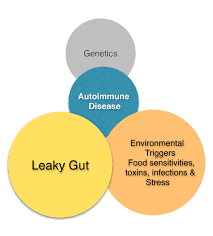Exploring New Treatments for Autoimmune Diseases
The
mechanism of a human body surpasses every other invention that has transformed
mankind. Be it light or the first step in Moon, nothing can match a human body
that works 24/7, 365 days a year. However, whenever there is the slightest
change that results in malfunctioning within the body, we call it a
disease.
The
Immune system disorder is one such disease that results in a low or abnormal
activity of the immune system. In these circumstances, the antibodies damage
the body's own tissues. With over eighty types of autoimmune diseases globally,
it's a tough time for a medical specialist to identify the source. However,
once identified, autoimmune disease treatment is curable and is a common ailment in today's modern times.
As
medical science continues to walk on the path of innovations and new solutions,
new therapies are being explored for autoimmune disease cures too. A majority
of the current therapies affect the normal cells that are working normally
alongside inactivating the specific immune cell. This ultimately leaves a human
body open to other kinds of diseases and infections. And, therefore scientists
across the globe are exploring new avenues for autoimmune disease cure.
These
constant pushes to develop advanced therapies for curing autoimmune disease has
taken a constructive motion and are progressing forward with result-oriented
solutions. Below are the common objectives:
·
target
the specific immune cell and leave the healthy ones
·
improving
immune tolerance in quick time
·
minimum
side-effects and low toxicity
·
cost-effective
methodology - helpful for the masses
As per
the details available in the journal Nature Biomedical
Engineering, researchers of the Utah Health - Saltlake City, USA are
working closing to disable the particular immune cells, while excluding the
healthy immune cells. Already performed on mouse models, it focuses on the PD-1
cells that have a crucial role to play in regulating the immune response. Below
are some of the probable pathways that can be a major player in the coming
times.
Costimulatory Blockade
The T
cells get activated only when it receives the two main signals - antigen
recognition and the Costimulatory signal provided by the cell. This approach revolves
around the concept of blocking the Costimulatory signals. Although this has
been tested, the results are very slow and limited.
Regulatory T Cell Therapy
Although
immune responses are directed at self-antigens, T cells are the most important
cells as it has a mighty role in suppressing autoimmunity in the body.
Discovered in the late 90's, this discovery was a landmark in the field of
immunology.
Antigen Administration
Identifying
the self-antigens is another viable approach so that these antigens will
inhibit rather than promote autoimmune responses when administered in a human
body. Clinically tested for several years, Allergen-specific immunotherapy
(allergen-SIT) is an effective therapy for treating autoimmune disease.
The Future Path
Different
approaches or therapies have yielded different results and are unique to one
and another. Each therapy has its own positive and negative sides that have to
be counted. In addition, encouraging ethically sound clinical trials should be
done at a global level, so that we can derive a definite process for autoimmune disease treatment in pune.



Comments
Post a Comment